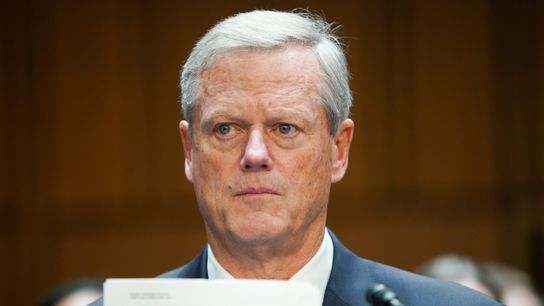In an interview with ESPN, NCAA president Charlie Baker said he did not support the organization he leads pursuing any further restrictions on transfers, and cited the frequency of coaching movement in doing so.
"I've had conversations with a bunch of coaches who didn't ... walk out on their contracts," Baker said. "One of the things I hear from kids when I talk to them about this issue is, 'Coaches walk out on their contracts. What about us?'"
Of course, constant coaching movement is but one of many reasons why the NCAA has thrown in the towel in legislative attempts to keep athletes at the school they signed with out of high school.
In December, seven states sued the NCAA in federal court over the a new policy aimed at limiting multi-time undergraduate transfers. The US Justice Department joined the suit last month. In an age where student-athletes can earn NIL money by transferring, it's the official stance of the Justice Department that limiting player movement is a violation of antitrust law.
The NCAA and its member conferences have lobbied Congress for help, and a number of the bills percolating around Capitol Hill include limits on transfers. Baker said he does not support such limitations. "I'm not much on that. I'm not," he said.
Part of the reason why the NCAA president does not support transfer restrictions is that, even with loosened transfer rules, college athletes still switch schools less often than their non-athlete peers. "Kids just transfer more because they have more information, more data, and they're more impatient about a lot of things," he said.
With the head of the NCAA formally announcing he is not in favor of transfer restrictions, there are now two paths forward for any "guardrails" limiting player movement:
1) One of the various bills floating around Congress that gives the NCAA antitrust protection somehow garners enough support to become law. This is already a Hail Mary option, and now seems even less likely with Baker against transfer restrictions.
2) College Sports, Inc., formally moves into a professionalized agreement, including a collective bargaining agreement with a players' association. Such an agreement would theoretically include movement restrictions in exchange for guaranteed income.
Until 1 or 2 come to pass, unlimited player movement will remain the status quo in college athletics.
